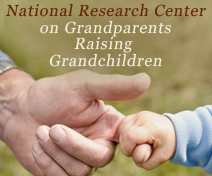ScholarWorks > Institutes & Centers > Grandparents Raising Grandchildren > GrandFamilies > Vol. 7 > Iss. 1 (2022)
Abstract
Intergenerational Self-help Clubs (ISHCs), also known as “Empathy Clubs” in Vietnam may aid in improving quality of life and well-being for grandparent-headed households impacted by HIV/AIDS. However, less is known about how club membership impacts household food security. This cross-sectional, mixed methods study examines the differences in household food security and coping responses to food insecurity among 30 grandparents who are raising grandchildren due to HIV/AIDS, 15 who were involved in ISHC groups and 15 who were not involved in ISHC groups, in Hai Phong, Vietnam. In addition to qualitative interviews, all grandparents completed the Household Food Security Insecurity Access Scale (HFIAS) to assess the prevalence of food insecurity. Chi-square and t-tests were employed to detect differences between ISHC members and nonmembers. The food security domain of anxiety and uncertainty related to having enough food was statistically significant (t [28] = 2.27, p < 0.03), with ISHC participants reporting less anxiety and uncertainty. Close to half (46%) of ISHC members reported mild food insecurity. By comparison, about the same percentage (47%) of nonmembers reported moderate food insecurity. Qualitative interviews revealed that food insecurity arose from barriers to accessing food, which led to three primary coping responses: 1) reconfiguring understandings of age-related nutritional needs, 2) erosive coping, and 3) engaging networks for nutritional support. Differences between members of the ISHCs and those without club involvement suggest that a strong community connection, perhaps bonding social capital, may play a role in reducing anxiety related to having enough food. Findings suggest that ISHCs may build social capital, provide psychosocial support, and increase food security among grandparent-headed households who face vulnerability.
Recommended Citation
Harris, L. M.,
Nguyen, H.,
Winters, A. M.,
Rosen, G.,
Thang, N. D.
(2022). Exploring Household Food Insecurity and Inter-generational Self-help Club Involvement Among Grandparents Raising Grandchildren Due to HIV/AIDS in Vietnam. GrandFamilies: The Contemporary Journal of Research, Practice and Policy, 7 (1).
DOI: https://doi.org/10.15453/3067-3674.1113
Available at: https://scholarworks.wmich.edu/grandfamilies/vol7/iss1/6
Included in
Social Justice Commons, Social Welfare Commons, Social Work Commons
